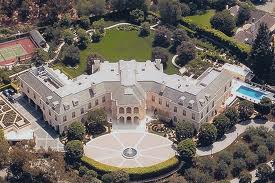The Parade of Privilege: How Government Favors Religion (Privilege #4: Land Use)

Luis Granados, director of the AHA’s publishing house, Humanist Press, responds to the Catholic bishops’ Fortnight for Freedom, a 14-day campaign which, according to the Washington Post, “purports to champion religious freedom, but in actuality distorts it by promoting the use of religion as a license to discriminate.”
Religious Privilege #4: Land Use
Land use laws can be a pain. Most of us have at least a little stubborn streak of “I paid for my property, I can do with it what I want.” But real-world experience with uncontrolled sprawl has led the vast majority of Americans to acquiesce in the need for sensible zoning and historic preservation laws that everyone has to comply with.
Everyone, that is, except God experts. Thanks to a travesty of a federal law called the “Religious Land Use and Institutionalized Persons Act” (RLUIPA), governments at every level now have to bend over backwards to change their zoning rules to accommodate anyone who claims to be acting for God.
Most of the effects of RLUIPA never even show up in the press. One that did occurred in Salem, Virginia, in 2010. The town government spent hundreds of thousands of taxpayer dollars improving a parcel of land just off Interstate 81, putting in roads, parking, and utilities to create an industrial park to attract business to generate jobs for the community. “If you build it, they’ll come.” Pastor Tom McCracken watched all this work patiently, and when it was finished he applied for a change in the zoning so that he could move his “CommUNITY Church” there. No way, said the town; the point of spending the taxpayers’ money was to attract jobs, not to build a church, which among other things would be unconstitutional. McCracken and his clever lawyers, though, relied on a blatantly discriminatory RLUIPA to bully the town into changing the zoning so his church could move in – a slick end run around both the federal Constitution and Thomas Jefferson’s Virginia Statute of Religious Freedom, which proclaims that “To compel a man to furnish contributions of money for the propagation of opinions which he disbelieves is sinful and tyrannical.”
Like most controversies under RLUIPA, this one never made it to court; when the town discovered that it would have to pay both sides’ attorney fees if it lost the case, but Pastor McCracken would not have to do likewise, it caved in without a fight.
Now we can go back to listening to the bishops complain about the assault on religious liberty.
Visit the American Humanist Association’s Facebook page every day beginning June 26 where we counter the Catholic bishops’ Fortnight for Freedom by posting a special privilege experienced only by churches in the United States.
